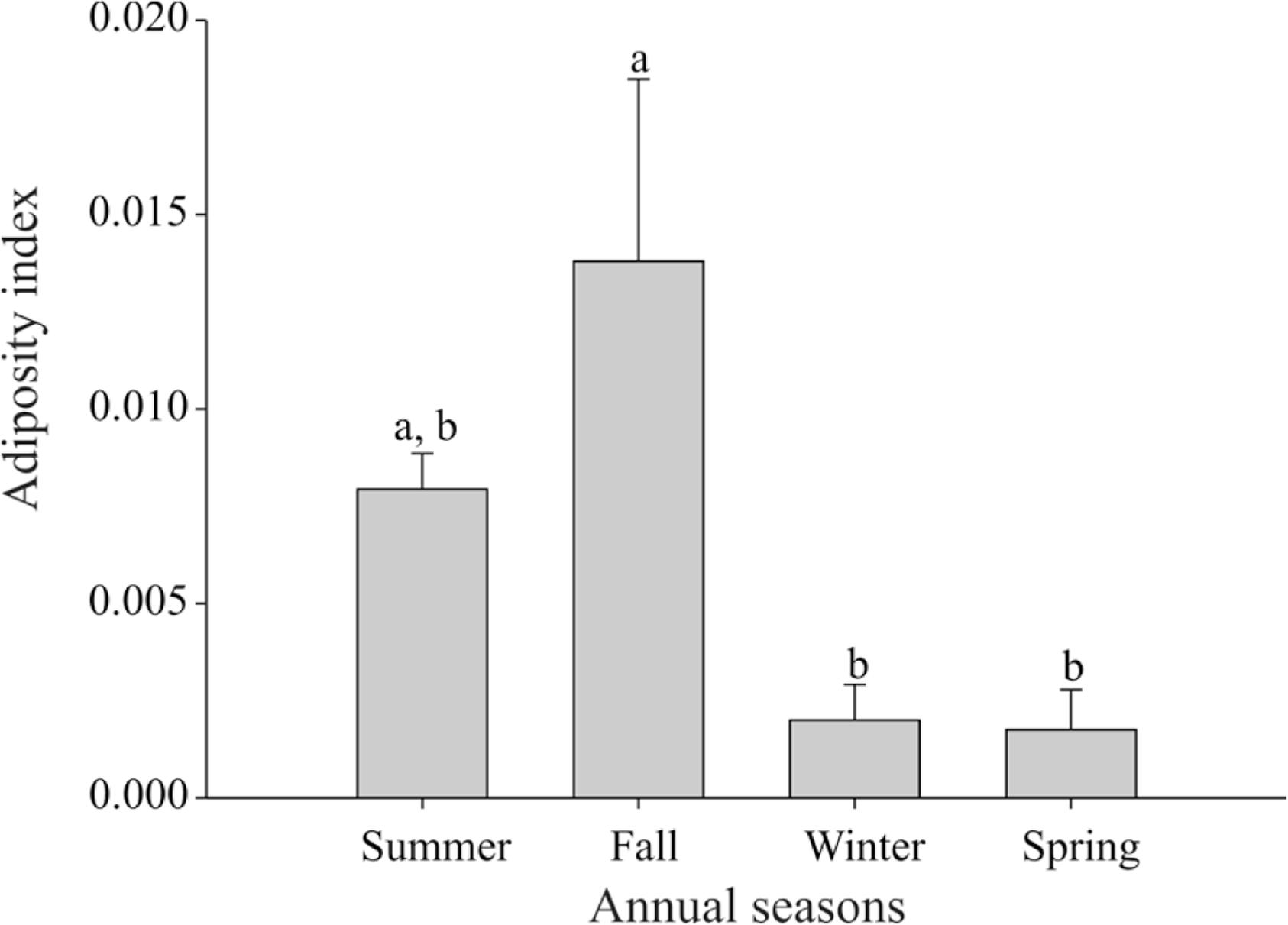Seasonal variation is a key factor regulating energy metabolism and reproduction in several mammals, including bats. This study aimed to track seasonal changes in the energy reserves of the insectivorous bat Molossus molossus associated with its reproductive cycle. Adult males were collected during the four neotropical annual seasons in Viçosa - MG, Brazil. Blood and tissues were collected for metabolic analysis and testes were removed for histology and morphometry. Our results show that liver and breast muscle glycogen concentrations were significantly lower in winter. The adiposity index was significantly higher in the fall compared to winter and spring. Seminiferous tubules were greater in diameter in animals captured in fall and winter, indicating a higher investment in spermatic production during these seasons. The percentage of Leydig cells was higher in summer compared to fall and winter. We suggest that M. molossus presents a type of seasonal reproduction with two peaks of testicular activity: one in fall, with higher sperm production (spermatogenesis), and another in summer, with higher hormone production (steroidogenesis). The metabolic pattern may be associated with reproductive events, especially due to the highest fat storage observed in the fall, which coincides with the further development of the seminiferous tubules.
spermatogenesis; histology; insectivorous; males; metabolism



